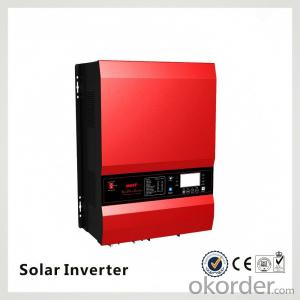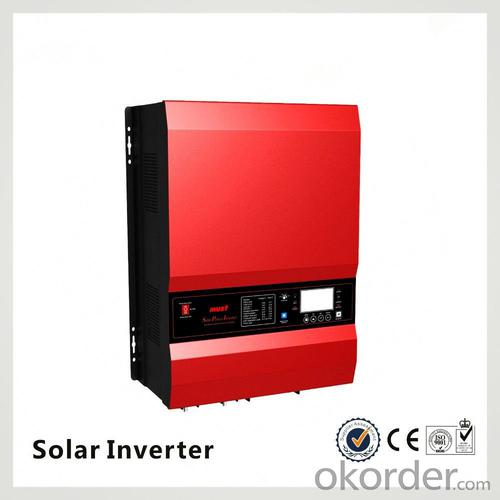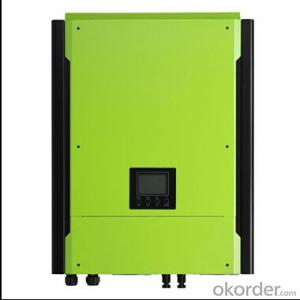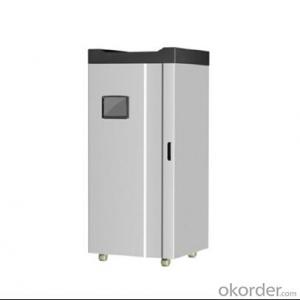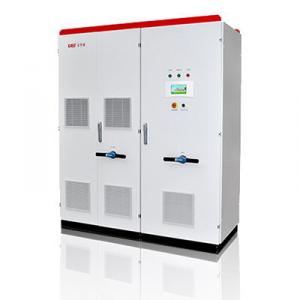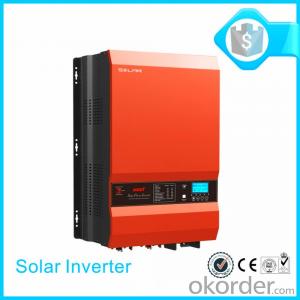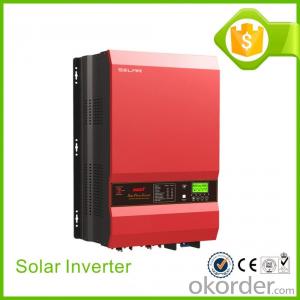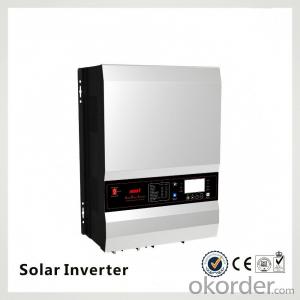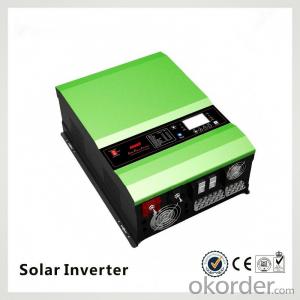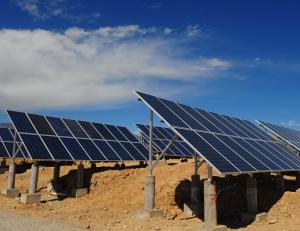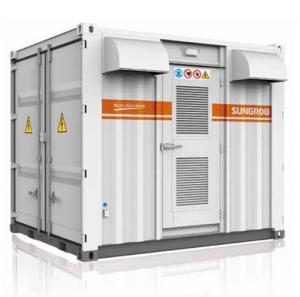11kw Solar Inverter - 4000 Watt Off-Grid Hybrid Solar Power Inverter 1000 2000 3000 4000 5000VA
- Loading Port:
- Shanghai
- Payment Terms:
- TT OR LC
- Min Order Qty:
- 1000 watt
- Supply Capability:
- 100000 watt/month
OKorder Service Pledge
OKorder Financial Service
You Might Also Like
Product Description
What is Solar inverter?
Solar pv inverters is an electronic system that operates the photovoltaic(PV) modules in a manner that allows the modules to produce all the power they are capable of. The solar mate charge controller is a microprocessor-based system designed to implement the MPPT. It can increase charge current up to 30% or more compared to traditional charge controllers.
Features
. Pure sine wave inverter
. Selectable input voltage range for home appliances and personal computers
. Selectable charging current based on applications
. Configurable AC/Solar input priority via LCD setting
. Compatible to mains voltage or generator power
. Parallel operation with up to 6 units only available for PV1800 4KVA/5KVA
. Auto restart while AC is recovering
. Overload and short circuit protection
. Smart battery charger design for optimized battery performance
. Cold start function
Specification
RATED POWER | 1000VA / 800W | 2000VA/ | 3000VA / 2400W | 4000VA / 3200W | 5000VA / 4000W | |||||
INPUT | ||||||||||
Voltage | 230 VAC | |||||||||
Selectable Voltage Range | 170-280 VAC (For Personal Computers) ; 90-280 VAC (For Home Appliances) | |||||||||
Frequency Range | 50 Hz/60 Hz (Auto sensing) | |||||||||
OUTPUT | ||||||||||
AC Voltage Regulation | 230 VAC ± 5% | |||||||||
Surge Power | 2000VA | 4000VA | 6000VA | 8000VA | 10000VA | |||||
Efficiency (Peak) | 90% | 93% | ||||||||
Transfer Time | 10 ms (For Personal Computers) ; 20 ms (For Home Appliances) | |||||||||
Waveform | Pure sine wave | |||||||||
BATTERY | ||||||||||
Battery Voltage | 12 VDC | 24 VDC | 48 VDC | |||||||
Floating Charge Voltage | 13.5 VDC | 27 VDC | 54 VDC | |||||||
Overcharge Protection | 15 VDC | 30 VDC | 60 VDC | |||||||
Maximum Charge Current | 10 A or 20 A | 20 A or 30 A | 60 A | |||||||
SOLAR CHARGER (OPTION) | ||||||||||
Charging Current | 50 A | |||||||||
Maximum PV Array Open Circuit Voltage | 30 VDC | 60 VDC | 105 VDC | |||||||
Standby power Consumption | 1 W | 2 W | 2 W | |||||||
PHYSICAL | ||||||||||
Dimension, D x W x H (mm) | 95 x 240 x 316 | 100 x 272 x 355 | 125 x 297.5 x 468 | |||||||
Net Weight (kgs) | 5.0 | 6.4 | 6.9 | 9.8 | 9.8 | |||||
OPERATING ENVIRONMENT | ||||||||||
Humidity | 5% to 95% Relative Humidity(Non-condensing) | |||||||||
Operating Temperature | 0°C - 55°C | |||||||||
Storage Temperature | -15°C - 60°C | |||||||||
Images
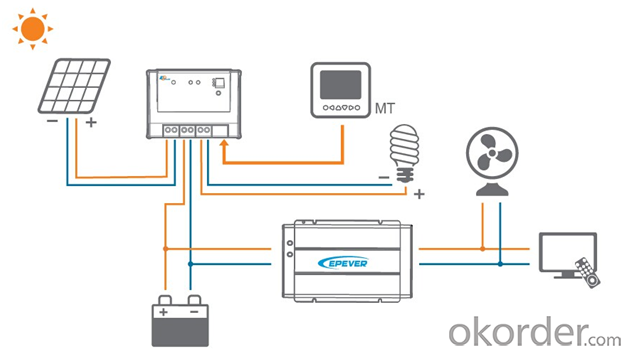
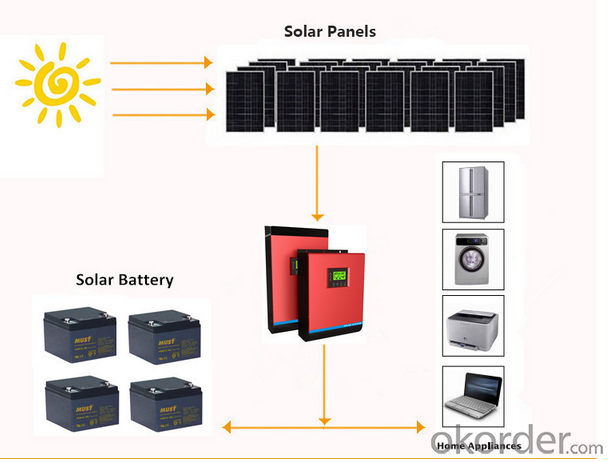
Packaging & Shipping
What is the packing?
1.Package: Carton Box for packaging, or Wooden Box advised for Samples to protect in transportations. Package designed by Clients is welcomed.
2.Shipping: DHL,FEDEX,UPS,EMS,AirWay and By Sea.
3.Payment: T/T( telegraphic transfer (T/T) and Western Union
4.Welcome to your Sample Order to test First.
FAQ
Q1: How to choose a right inverter?
A1:Tell us your demand, then our sales will recommend a suitable inverter to you.
Q2: What's the different between inverter and solar inverter?
A2: Inverter is only accept AC input, but solar inverter not only accept AC input but also can connect with solar panel to accept PV input, it more save power.
Q3: How about the delivery time?
A3: 7 days for sample; 25 days for bulk order.
- Q: What is the maximum number of MPPT inputs in a solar inverter?
- The maximum number of MPPT inputs in a solar inverter can vary depending on the specific model and brand. However, in general, solar inverters can have anywhere from one to multiple MPPT inputs, with some high-end models offering up to six or more MPPT inputs.
- Q: What is the maximum DC input current of a solar inverter?
- The maximum DC input current of a solar inverter depends on its specifications and design. It can vary greatly depending on the model and capacity of the inverter. It is essential to refer to the manufacturer's documentation or specifications to determine the specific maximum DC input current for a particular solar inverter.
- Q: Can a solar inverter be used with both AC and DC power sources?
- No, a solar inverter is designed to convert DC power from solar panels into AC power for use in standard electrical systems. It cannot be used with both AC and DC power sources simultaneously.
- Q: How does a grid-tied solar inverter work?
- A grid-tied solar inverter works by converting the direct current (DC) electricity generated by the solar panels into alternating current (AC) electricity that can be used to power household appliances and be fed back into the electrical grid. It synchronizes the frequency and voltage of the solar-generated AC electricity with that of the grid, allowing seamless integration and transfer of power. This inverter also ensures safety by monitoring the grid connection and automatically disconnecting the solar system from the grid during power outages or maintenance work. Overall, it enables efficient utilization of solar energy and allows homeowners to reduce their reliance on fossil fuels while potentially earning credits for excess electricity generated.
- Q: Can a solar inverter be used in regions with high levels of air pollution?
- Yes, a solar inverter can be used in regions with high levels of air pollution. The performance of the solar inverter may be slightly affected due to the reduced sunlight reaching the solar panels, but it can still convert the available solar energy into usable electricity. Regular maintenance and cleaning of the solar panels may be required to mitigate the impact of air pollution on their efficiency.
- Q: What is the lifespan of the capacitors in a solar inverter?
- The lifespan of capacitors in a solar inverter can vary depending on several factors such as the quality of the capacitors, the operating conditions, and the overall design of the inverter. However, on average, high-quality capacitors in a well-designed solar inverter can have a lifespan of around 10 to 15 years. Regular maintenance and proper usage can help extend the lifespan of the capacitors in a solar inverter.
- Q: How much maintenance is required for a solar inverter?
- Solar inverters typically require minimal maintenance. Most modern inverters are designed to be reliable and durable, requiring little to no maintenance throughout their lifespan. However, occasional cleaning of the inverter's vents and ensuring proper ventilation can help optimize its performance. Additionally, monitoring the inverter's performance and checking for any error messages or unusual behavior can help identify and address any potential issues. Overall, the maintenance required for a solar inverter is generally minimal, making it a low-maintenance component of a solar system.
- Q: What is the role of a solar inverter in preventing overloading?
- The role of a solar inverter in preventing overloading is to monitor the flow of electricity from the solar panels and regulate the amount of power being generated and fed into the electrical grid. It ensures that the solar system operates within its capacity and prevents excessive power generation that could lead to overloading and potential damage to the system or the electrical grid.
- Q: Can a solar inverter be used with different types of solar PV systems (roof-mounted, ground-mounted, etc.)?
- Yes, a solar inverter can be used with different types of solar PV systems, including roof-mounted, ground-mounted, and other variations. The primary function of a solar inverter is to convert the direct current (DC) electricity generated by solar panels into alternating current (AC) electricity that can be used to power appliances and feed into the electrical grid. This conversion process remains consistent regardless of the type of PV system being used. However, it's important to note that the specific requirements and specifications of the solar inverter may vary depending on the type of PV system. Different PV systems may have varying voltage and power outputs, which may require specific inverter models capable of handling those specific requirements. For example, ground-mounted solar systems may have larger arrays and higher power outputs compared to roof-mounted systems, necessitating a different inverter. Therefore, while a solar inverter can generally be used with different types of solar PV systems, it is crucial to choose an inverter that is compatible with the specific system's voltage, power output, and other technical specifications. It is always recommended to consult with a professional solar installer or technician to ensure the proper selection and installation of the solar inverter for your specific PV system.
- Q: Can a solar inverter be used with different types of grounding materials?
- Indeed, various grounding materials can be employed in conjunction with a solar inverter. Nevertheless, it is crucial to verify that the grounding system aligns with the manufacturer's prescribed specifications and guidelines for the specific solar inverter. The selected grounding materials must adhere to the essential safety standards and furnish adequate electrical grounding for the solar setup. It is advisable to seek guidance from a certified electrician or solar expert to ascertain the fitting grounding materials for your particular solar inverter and installation.
Send your message to us
11kw Solar Inverter - 4000 Watt Off-Grid Hybrid Solar Power Inverter 1000 2000 3000 4000 5000VA
- Loading Port:
- Shanghai
- Payment Terms:
- TT OR LC
- Min Order Qty:
- 1000 watt
- Supply Capability:
- 100000 watt/month
OKorder Service Pledge
OKorder Financial Service
Similar products
Hot products
Hot Searches
Related keywords
